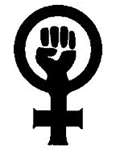Most "Insert List Here" of 2014: Ratings and hierarchies
Happy new year! I hope that this year finds you with accepted publications, good grades, and time for sleep.
Each year, starting mid-December, begins the season for “ratings” and lists of the “best” and the”worst” moments, outfits, songs, movies, actors, or whatever you can put in a list of the previous year. As my Facebook feed quickly turns from photos and status updates to comical BuzzFeed lists, I came across one interesting list this year that I had not seen before: Mic.com’s “The 39 Most Iconic Feminist Moments of 2014.” Of course I quickly shared the article, primarily so I can refer to it later for this post, but it received no “likes” or “comments” on my Facebook (a page with relatively frequent activity). That may come as no surprise, as the word “Feminist” was voted by Time Magazine readers as the word to be banned in 2015, and other significant backlash against feminist ideals (see also Rachel Rademacher’s piece here about how we still need feminism). Rereading the list today, however, I am unsure how I feel about this list: mixed feelings about the rise in publicity of feminist ideals but also what qualifies as feminist and how we must rank them.
Pros.
This list is comprehensive of popular and widely reached feminist moments of 2014, I am surprised. While it is not perfectly representative, it does show how the feminist movement is shifting from its past of White, middle-class, married women. Some highlights include:
1) Malala Yousafzai accepted the Nobel Peace Prize — and went straight back to chemistry class
4) A survivor brought her mattress — and sparked a national movement.
9) Laverne Cox didn’t break barriers, she crushed them.
11) #YesAllWomen reached almost 2 million tweets in under four days.
13) Beyoncé danced in front of the world — and a gigantic feminist banner.
15) Lupita Nyong’o forced Hollywood to take blackness seriously.
35) Joseph Levitt-Gordon became the face for male feminists everywhere.
It does not cease to amaze me that wide array of visibility that feminism had this past year, from popular media and celebrities such as Beyonce and Taylor Swift, LGBT issues such as Janet Mock, Laverne Cox, and Ellen Page, transnational issues such as Malala Yousafzai, race issues such as Lupita Nyong’o and the women of Ferguson, masculinity such as Joseph Levitt-Gordon and Aziz Ansari, policy and law, sexual harassment and assault, social movements, and everything in between. While we have many strides left to go, this list is promising to show how feminism is still relevant, and changing and growing in inclusivity and popularity with each year.
Cons.
With that being said, I still feel conflicted about the idea of how we must rate and rank feminist moments of each year. The article’s author does not necessarily state her methodology in how these specific events were chosen beyond being “iconic”- how do we define iconic? Iconic to whom? What about impact and change? How would that all be measured? I think the thing I have the biggest problem is that while yes, Beyonce may rule the world and be more accessible to people worldwide, we are forgetting the small, day-to-day, efforts of feminists that don’t have unlimited resources and access to power to advertise their feminist moments. While yes these moments may be iconic, they are iconic for certain people. Wide reaching is not necessarily change, it does not make impact on lived realities. But it is a start. I do appreciate this list, I really do, but I would think twice about ranking them and calling them the “most” feminist of 2014.
So What Does This Mean?
While I may not necessarily have something overtly sociological to say about this article, it nevertheless speaks loudly to the way in which popular culture and feminism both interact and shape one another overtime. I like to look at this list primarily positive- a list of strong people of all genders, sexualities, nationalities, religions, and races (though ability is something lacking) standing up for an important cause and acknowledging that while many strides have been made, there are many more to go. It is iconic moments of feminism that, while carry a sense of privilege due to their social positionality, that still carry significant weight and ability to be far reaching. When we still have stars saying that they have never experienced discrimination or inequality, or rejecting the word “feminist” merely based on connotation, this list proves that there is something still to stand for. Is this a new wave of feminism, or are our voices just a little bit stronger and louder than before?
Pieces to read:
Munro, Ealasaid. “Feminism: A Fourth Wave?” Political Insight 4(2):22-25.
Waters, Melanie (ed). 2011. Women on screen : feminism and femininity in visual culture. Basingstoke, New York : Palgrave Macmillan.






1099-0860/asset/NCB_logo.gif?v=1&s=40edfd0d901b2daf894ae7a3b2371eabd628edef)
1 Response
[…] Most “Insert List Here” of 2014: Ratings and hierarchies […]